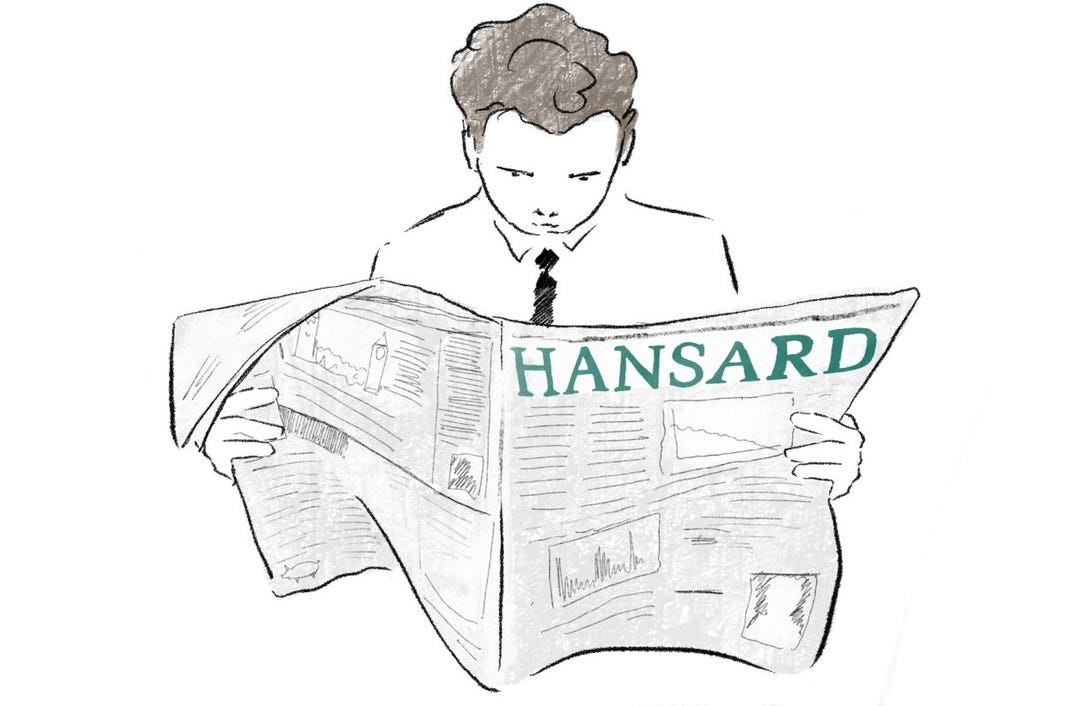British politicians on China, Minister Wong in London, Procurement headaches
A Beijing to Britain briefing
Hello,
Do British politicians have the right language and strategic discipline to express what they actually want from the UK’s relationship with China? I have been mulling over this question of late, partly because prior to the Ballon Incident, United States Secretary of States Antony Blinken was meant to be in Beijing where he was expected to meet General Secretary Xi Jinping. This (now postponed) trip followed another meeting last month between US Secretary of the Treasury Janet L. Yellen and Vice Premier of the People’s Republic of China, Liu He. So two top officials from the United States, which by almost all metrics sits in a more “hawkish” place than the United Kingdom, meeting top officials from China, a country the Biden Administration believes to be committing genocide, in the midst of what has been described by some as a second cold war.
What would the reception have been like across Westminster if Britain’s Foreign Secretary James Cleverly had visited Beijing, or Chancellor Jeremy Hunt met with Liu, held a “candid, substantive, and constructive conversation” (as Yellen/Liu reportedly had), and said he looked forward to travelling to China? I suspect a number of angry tweets, anonymous sources briefing across Fleet Street, the meeting condemned as “Project Kowtow” by the loudest voices in SW1, and criticism of businesses that offered support for the meetings.
There are some shortcomings with this comparison: the Biden Administration has been fairly clear with what it wants - and doesn’t want - from the Chinese Communist Party, whereas the UK’s own China approach is much vaguer, episodic and reactive. But it is true that a number of British politicians are largely incapable of publicly expressing what they believe ‘good’ engagement looks like beyond a compulsory mention of “climate change cooperation” or “pandemic prevention”, and few are prepared to have frank public debates about realistic trade-offs. This limits the backbench of Parliament’s ability to criticise the Government’s own disjointed approach, because they often can’t point to what they actually want.
This makes comments delivered in London this week by Australian Foreign Minister Penny Wong worthy of mulling over at length. Wong, who has visited 24 countries in the Indo-Pacific region during her first six months in the role, advised that her government is taking “an approach that puts listening above lecturing” throughout the region. This approach “doesn’t force people to choose sides, but asks people to choose what sort of region they want, and asks them to work with us on achieving that together.” Australia’s Indo-Pacific strategy is actually fairly simple. What do they want? A safe and prosperous region. How are they planning on getting there? Engaging with partners, asking what they want, not lecturing, and showing results.
Parliament’s increasingly frequent inability to discuss the world as it is, rather than as wish it to be, goes beyond China and will impact how the United Kingdom succeeds in the post-Brexit era, especially with other countries that don’t share all the values of Western liberal democracies. Many of these countries - and multinational businesses that operate in them - are watching Parliament closely. Words are easy, action is hard.
— Sam Hogg, Editor
In this week’s Briefing Note, we reveal that Chinese surveillance firm Hikvision has been requesting meetings with senior lawmakers, which includes a “Three Myths About Hikvision” section in their private letters. We also delve into the key takeaways from a high-level meeting between Australian and British officials, dissect the Government’s latest semiconductor rhetoric, and look at the growing trade deficit between London and Beijing.
There will be no Briefing next weekend.
Order! Order!
Some of the more eye-catching questions and tweets from Westminster dwellers this week
Tim Loughton (Conservative, IPAC) asked “the Secretary of State for Education, what steps her Department is taking to help counter potential undue influence of Confucius institutes on universities’ wider relationships with China.”
Alyn Smith (SNP, IPAC) asked “the Secretary of State for Foreign, Commonwealth and Development Affairs, what assessment his Department has made for the implication of its policies of the Chinese-British Business Council and its ties to the United Front Work Department and the Propaganda Department of the Chinese Communist Party.




